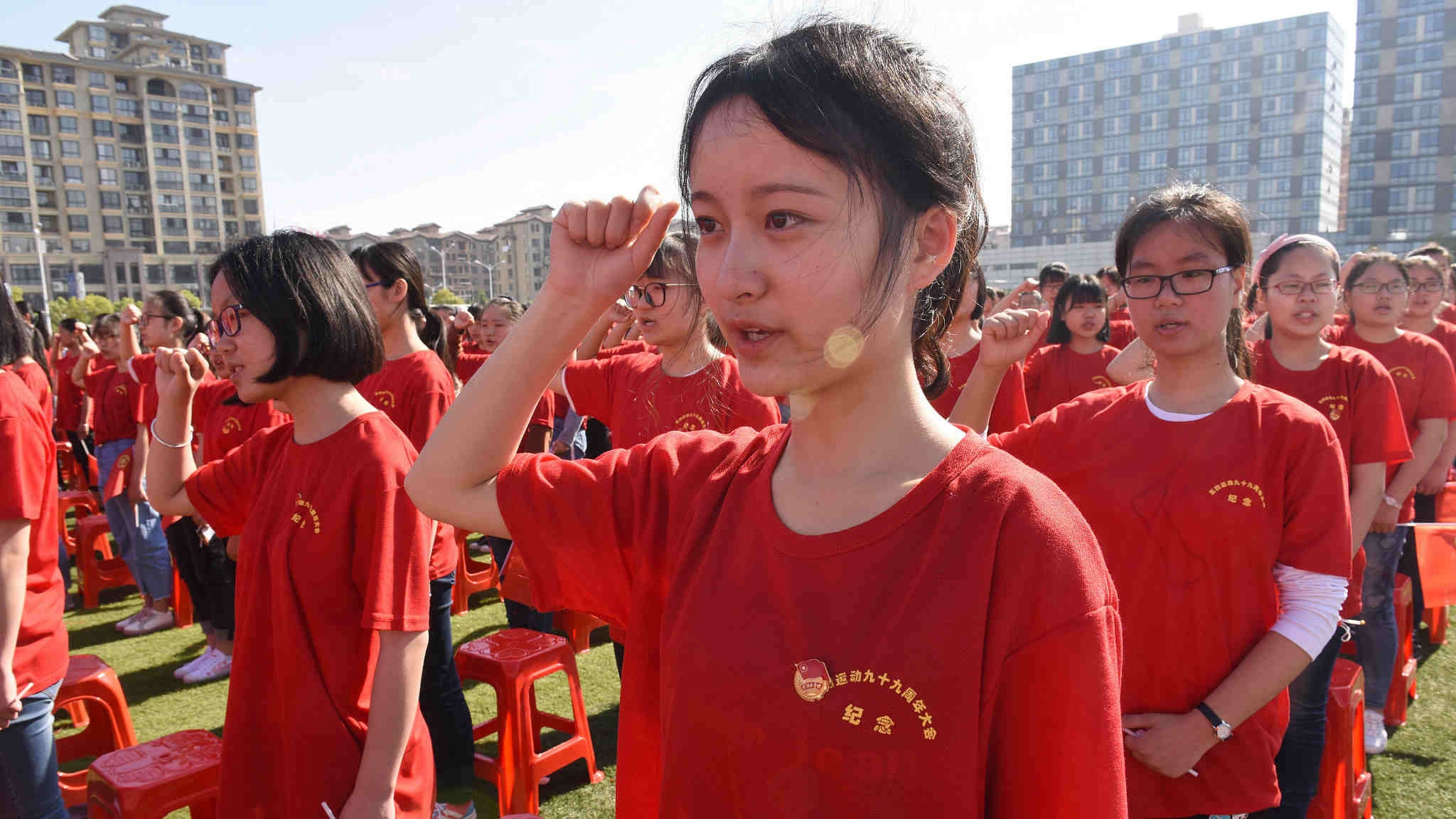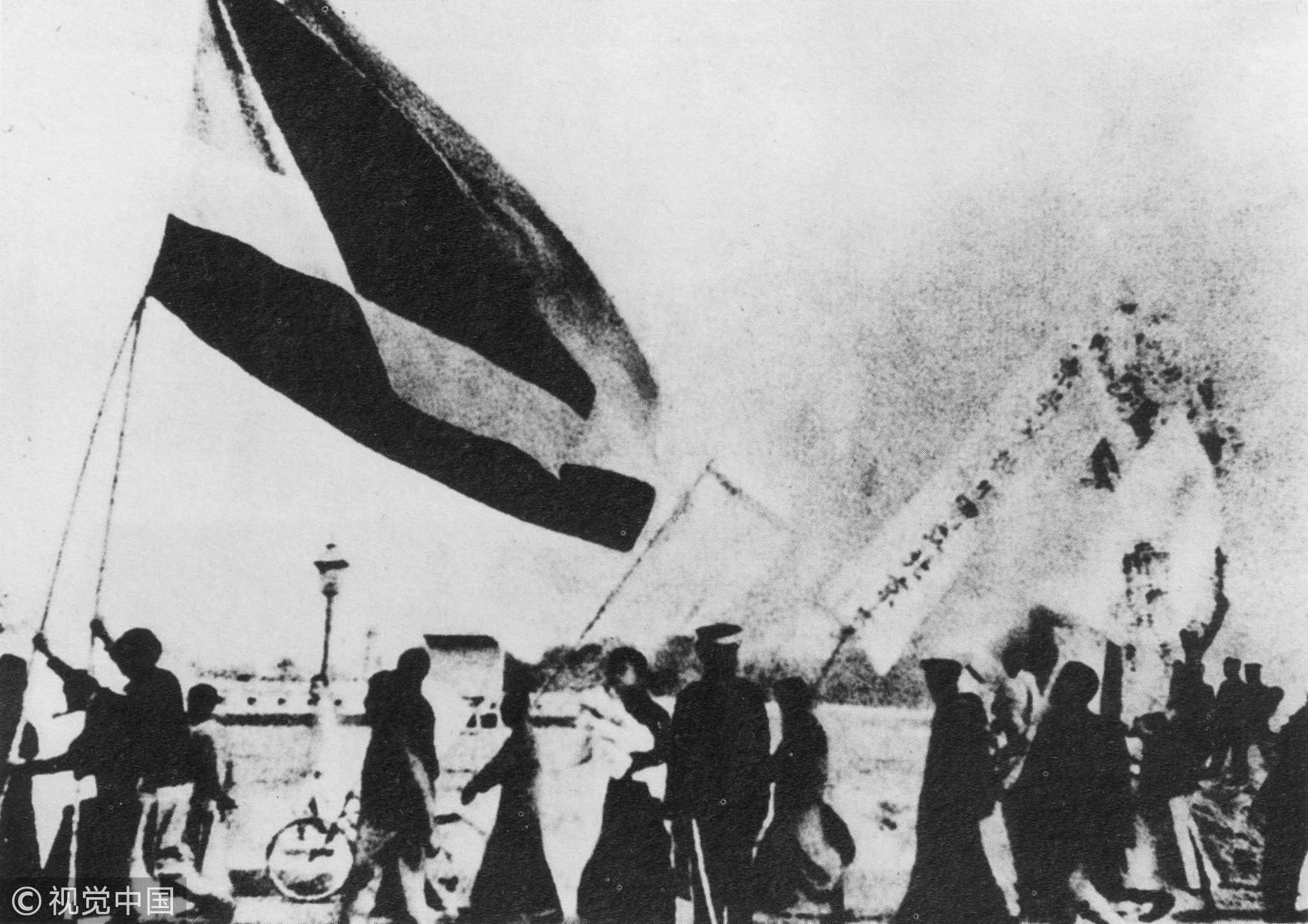
Opinions
16:35, 04-May-2018
Opinion: Young people's values determine the future of China
Guest commentary by Wei Nanzhi

A system of values that the majority of a society agrees with is essential to holding a society together. When meeting students from Peking University on May 4, 2014, President Xi Jinping stressed that, "Young people's values determine the values of the future society." In China, May 4 is celebrated as National Youth Day every year since 1949. Therefore, President Xi chose this day to express his expectations to today's Chinese young people.
In December 1949, the Government Administration Council of the People's Republic of China established National Youth Day to honor the landmark event of the May Fourth Movement of 1919. In the early 20th century, China was in a period of cultural conflict with the West. Known as the Chinese Enlightenment, the May Fourth Movement was a patriotic campaign, and a cultural and political movement that grew out of student demonstrations in Beijing.
At this time, young students were not only creating a new culture characterizing democracy and science to protest against feudalism and traditional Chinese culture, but also fighting against imperialism. Later, this movement developed into a nationwide patriotic movement with proletarians, petty bourgeoisie and national bourgeoisie.

Students protest in the May Fourth Movement of 1919, Beijing. /VCG Photo
Students protest in the May Fourth Movement of 1919, Beijing. /VCG Photo
Although the May Fourth Movement was a thorough and uncompromised one, it truly set China on a revolutionary path, opening the door for Marxim to be seen as a workable ideology for the country moving forward. Therefore, the May Fourth Movement was both the beginning of the Chinese New Democracy Revolution and a catalyst for the founding of the Chinese Communist Party (CCP). The CCP's capacity to attract, cultivate and guide Chinese young people was an important factor in its rise.
Looking back through history, the values of Chinese young people in the early 20th century played an important role in starting the national liberation movement in China. Soon after the foundation of the People's Republic of China, May 4 was formally declared as National Youth Day to preserve and develop the spirit of the May Fourth Movement. In a broad sense, its core spirit consists of patriotism, progress, democracy and science.
In this sense, Youth Day is a national holiday of a political nature. It reflects the unity and strong will of both the Chinese government and the Chinese people to defend their patriotism, independence and determination for freedom and democracy.

A Youth League choir celebrates the 99th anniversary of the May Fourth Movement in Nanjing, Jiangsu Province, China, on May 4, 2018. /VCG
A Youth League choir celebrates the 99th anniversary of the May Fourth Movement in Nanjing, Jiangsu Province, China, on May 4, 2018. /VCG
After nearly 70 years, National Youth Day has become one of the most significant festivals in China. It has a great influence on the evolution of modern Chinese culture, language, science and democracy. Moreover, it encourages young people to make bold changes and to be innovative.
Today, ensuring young people's cultivation of sound value systems is of vital importance to realizing the "Chinese Dream." In the words of President Xi, "Young people should emancipate the mind, advance with the times, forge ahead and innovate so as to gather experience and make achievements," and also "be optimistic and tenacious when facing adversities." It is high time for young people to make the best of youth through innovation and entrepreneurship.
(Wei Nanzhi is a research fellow at the Chinese Academy of Social Science. The article reflects the author’s opinion, and not necessarily the views of CGTN.)

SITEMAP
Copyright © 2018 CGTN. Beijing ICP prepared NO.16065310-3
Copyright © 2018 CGTN. Beijing ICP prepared NO.16065310-3